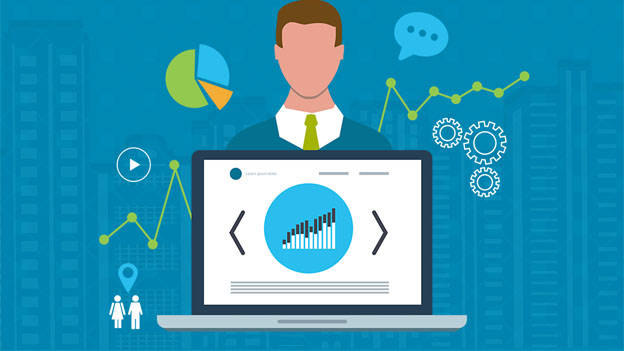How AI streamline employees management system

The adaption to smart technology and application of artificial intelligence (AI) is witnessed in almost all professions and industries globally. The result of this paradigm shift to technological solutions have certainly opened up new avenues for the employers and even the employees.
To have a deeper insight of how AI has helped in streamlining the management system let us first get an overview of what artificial intelligence is. In simple terms, Artificial Intelligence is a technology that allows computers to learn from and make or recommend actions based on previously collected data
Prior to artificial intelligence, the methodologies adopted to boost employee engagement have not shown desired results. ‘On-the-job’ surveys, board-room committees, data analysis and half-baked concepts have been criticized for long as they do not elicit proper responses and real solutions.
Artificial intelligence has really empowered organisations to tackle the engagement challenge, efficiently.
AI applications are used for efficiently managing the human resource processes which has a direct and proportional impact on the business and productivity of organisations. Earlier, tasks like monitoring staff attendance and leave requests, surveillance system of stores and most admin activities were manually managed leading to a slack in the system in terms of efforts and time-investment by the work-force.
As per a recent survey by Oracle and Future Workplace, human resources professionals believe artificial intelligence can lead to more opportunities for mastering new skills and getting more free time that can be utilised by the HR professionals to expand their work horizon and become more strategic within the organisation. Also, AI and machine-learning based mobile solutions can help in reducing the trade-off costs ascending due the lack of organised surveillance monitoring and manual tracking of staff-attendance.
There are numerous AI applications that have helped in streamlining major functions like recruitment, process improvement and automation of administrative tasks. Several leading organisations of the world have started to bring in AI technologies for recruitment. AI technologies not only eases the recruitment process for employers but also for applicants,
Technology has always been a great facilitator for change and improvement in the corporate landscape. Artificial intelligence, too, has boosted the scope of employee engagement through advanced sentiment analysis. Powered by natural language processing text analysis and other allied AI innovations, technology is making it easier to gather insights into employee behaviour. Through deeper analysis of email conversation, biometric data, companies are finding it easier to promote a sense of belonging, identify red flags and create an engaging environment around
The use of AI for recruitment and on-boarding has made the role of the HR department easier. Moreover, AI also plays a crucial role in maintaining the employee and past applicants’ database. AI’s smart technology can analyse and identify suitable candidates from the pool it maintains, this culminates the process of fresh search. AI also makes the on-boarding process easier because it allows the process to go beyond the standard business hours if conducted manually. It also allows chatbox assistance and remote support applications for new hires making it easier for them to become a part of the system. This not only reduces the administration burden on the organisation but also allows the new employees to go through the on-boarding process at their own pace.
HR professionals can also use AI to gauge employee engagement and job satisfaction thus enhancing internal communication and employee retention. There are several AI applications that allow timely feedback surveys and employee recognition systems that help the employers to understand the level of employee satisfaction and using the information for organisational benefits.
Some AI software can also evaluate the indicators of success and identify the ones who deserve to be promoted, therefore reducing the talent acquisition cost and increasing the retention rate.
Leveraging artificial intelligence to automate administrative tasks reduces HR professional’s responsibilities by eliminating the repeatable tasks and allowing them to utilize their time for strategic planning within the organisation. AI solutions can automate tasks like pre-screening tasks, scheduling interviews and other time-consuming tasks. A study by Eightfold highlighted that HR personnel who utilized AI software performed administrative tasks 19 percent more effectively than departments that do not use such technology.
However, the benefits of AI solutions are evident and even though many organisations have already commenced the integration of AI technology, several human resources professionals highlighted that they find it hard and challenging to get a hang on all the technological changes happening at work. Also, Deloitte’s 2019 Global Human Capital Trends survey found that only 6 percent of respondents believed that they had the best-in-class recruitment processes in AI technology, while 81 percent believed their organization’s processes were standard or below standard.
AI will gradually become a game-changer. According to a McKinsey survey , the limitations of AI are partly technical, such as the need for massive training data and difficulties “generalizing” algorithms across use cases. But an overarching challenge is the ability of organisations to adopt AI technologies, where people, data availability, technology, and process readiness often make it difficult to truly imbibe digital.
“Technology changes quickly, but organisations change much more slowly,” said George Westerman in his article on digital innovation. For sustained change, leaders must envisage their people strategy basis an AI-heavy workforce. They must proactively identify the use-cases to optimize and enhance people processes.
Parallelly, organisations must up skill and reskill the workforce for performing well in a digital-first environment. This starts with a top-down approach; the CXO suite must drive a culture of digital-enablement and digital-empowerment by talking the digital language in business. This will help organisations embrace AI as an intrinsic element and get employees to thrive in this change.
So, even though incorporation of AI in organisations may take time but it is imperative to acknowledge that artificial intelligence has the potential to enhance employee productivity, boost employee engagement and streamline management system, thus enhancing the business outcome of any organisation.
















